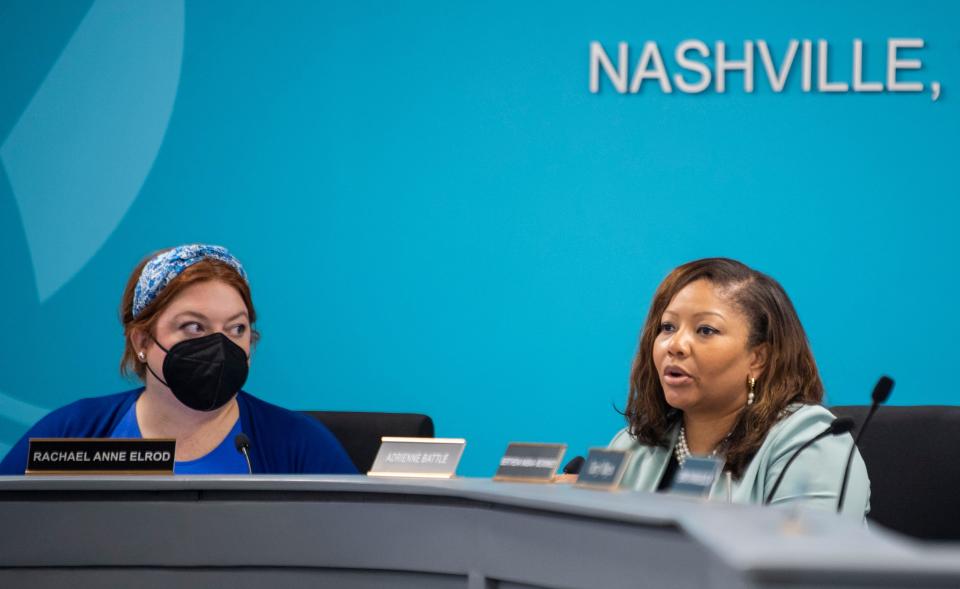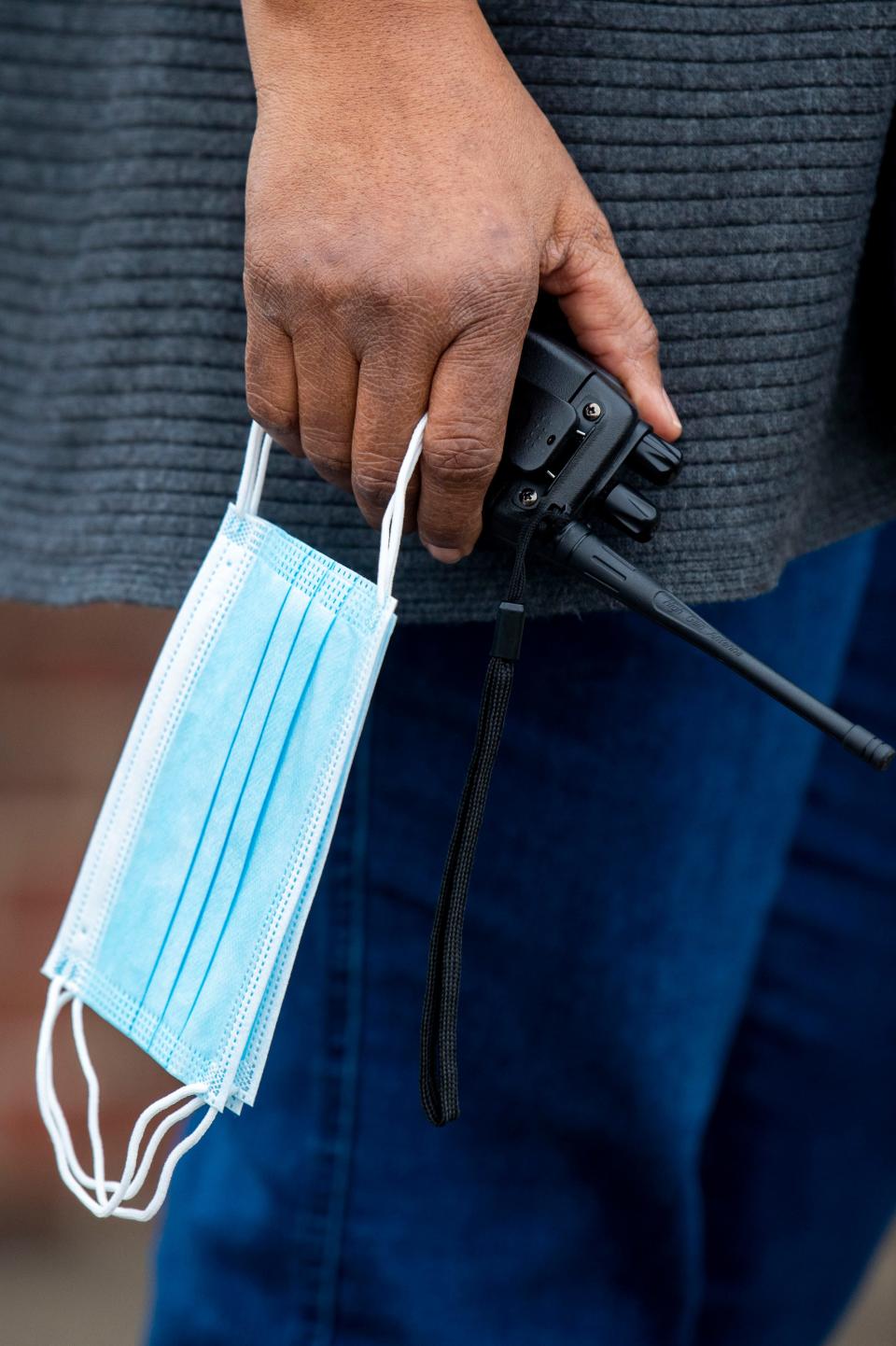Nashville schools share plans as federal pandemic relief funding winds down
Metro Nashville Public Schools is set to ask the Metro Council for permission to an additional $12 million from its fund balance to partially offset the expiration of federal pandemic relief funds this year.
The city initially estimated the district would have a $65 million surplus in its fund balance in the 2022-23 fiscal year, but that surplus actually came out to $77 million, according to MNPS Director Adrienne Battle. The council previously approved the district's use of the estimated $65 million to use toward various expenses. The district's overall fund balance was estimated around $270 million as of June 30. While Mayor Freddie O'Connell has approved the district's request to use the additional $12 million, it must now gain approval from the Metro Council.
The district has received nearly half a billion federal dollars in COVID-19 relief funds since March 2020. That numbers tops $4 billion for Tennessee as a whole.

Battle shared plans for requesting and using the additional funds during a Jan. 26 MNPS Board of Education retreat. Instead of facing a funding cliff, she said the district is building a funding bridge that will give them time to make long-term plans to offset the federal funding. She praised her team's proactive approach and said their current position was made possible by ongoing, honest conversations with city leaders.
"We have not blindsided them with the need to do this," Battle said to the board. "We sit here in a very good place in comparison to other districts because our city has partnered with us."
What did ESSER cover for Nashville schools?
MNPS received three waves of funding from the federal Elementary and Secondary School Emergency Relief Fund, also known as ESSER, totaling $425 million since 2020. It has until June 30 to spend down the funds. While the federal government has given districts a way to apply for an extension to spend the money, MNPS is still operating on the original timeline, which it planned for from the start, according to district spokesperson Sean Braisted.
According to the district website, it spent each wave of funds on the following things:
ESSER 1 ($26 million): Student nutrition, online learning, software and devices, instructional supplies, intervention programs, additional school nurses, hot spot data plans, training stipends for teachers, graduation success coaches and more
ESSER 2 ($123 million): COVID-19 operations, academics, social emotional learning, transitions and more
ESSER 3 ($276 million): Wi-Fi upgrades, teacher and student laptops, increased technology supports, high-dosage tutoring, interventions, advanced academics, arts and athletics, work-based learning, summer and extended learning, professional development, increased counselors, more mental health supports, restorative practice assistants, translation services and more.

MNPS Chief Strategy Officer Sarah Chin previously told The Tennessean that MNPS leaders have tried to play it smart with the federal relief money, putting as much of it as possible toward one-time expenses like updating HVAC systems to improve school air quality or buying laptops for virtual learning.
"At the same time, there's an inherent tension between the fact that sometimes the most effective things you can do for student outcomes are going to be things that require recurring funding," Chin said in October. "There's just only so many laptops you can buy."
Learn more about how the district used ESSER at mnps.org/about/budgets/esser.
What's next
The district has until June 30 to spend its remaining ESSER funds but is working ahead to assure it can retain staff tied to the programs funded by the relief money.
The district typically proposes its aspirational budget to the mayor in the spring, who then presents it to the council by the end of April. The council will ultimately vote on the new budget by the end of June, ahead of the start of the new fiscal year in July.
Some of the ESSER-funded programs may need to be adjusted over the next year, according to Braisted. For example, he said, the district's tutoring program significantly expanded for the current school year. The move came amid the ongoing fight against pandemic learning loss, along with the rollout of a controversial third grade reading and retention law.
'Worst-case scenario': 700 Nashville 4th graders may be held back under TN reading law
The district already folded some ESSER-funded programs into its annual operating budget over the last few years, like universal free meals for students and money for advocacy center coaches. Some expenses, like the nearly $10 million allocated for Promising Scholars, the district's summer school available to all students, have ESSER funds earmarked to cover them through summer 2025.
With the June 30 deadline still several months out, Braisted said, district leaders, the mayor and councilmembers are still ironing out details on adding the additional $12 million to the funds the district can use. Over the next year, and beyond, the district will also be working out long-term plans on how to sustain ESSER-funded programs.
"MNPS is thankful to Mayor O’Connell and the Director of Finance, Kevin Crumbo, for their partnership and collaboration to help build an ESSER bridge instead of facing the ESSER cliff that so many districts across the country are facing," Braisted said in an emailed statement. "This partnership will help to sustain the most strategic investments that have helped to improve student outcomes post pandemic."
This article originally appeared on Nashville Tennessean: Nashville schools: As pandemic relief expires, leaders detail plans

